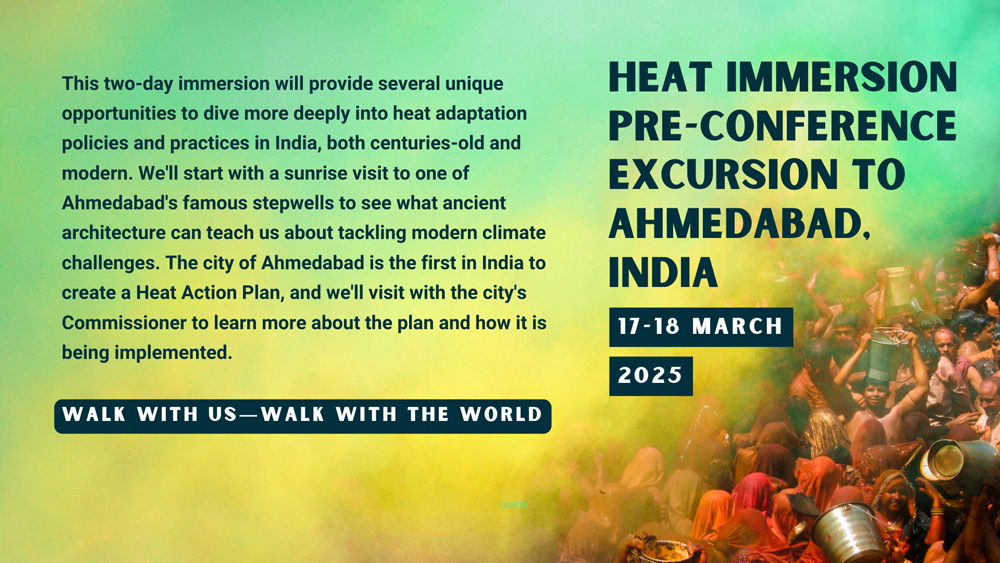SECOND EDITION: AHMEDABAD, INDIA
17-18 MARCH.

This two-day immersion will provide several unique opportunities to dive more deeply into heat adaptation policies and practices in India, both centuries-old and modern. We’ll start with a sunrise visit to one of Ahmedabad’s famous stepwells to see what ancient architecture can teach us about tackling modern climate challenges. We’ll then head to lunch with small business owners to hear firsthand about the financial impacts of extreme heat and how they are innovating to deal with it. The city of Ahmedabad is the first in India to create a Heat Action Plan, and we’ll visit with the city’s Commissioner to learn more about the plan and how it is being implemented.
On the second day, we’ll visit homes and work sites of informal women workers who are part a study led by Harvard professors Satchit Balsari and Caroline Buckee. This project, supported by both the Salata Institute and the Mittal Institute, follows hundreds of working women in the informal economy across various indoor and outdoor settings, measuring heat and humidity 24/7 across all seasons to better understand how extreme heat is truly experienced on the ground. We’ll start the day with an overview of the study, as well as the pioneering work of partner organization SEWA (the Self Employed Women’s Organization). After that, we’ll split up into smaller groups and head out into to the city to see how the study is being carried out with the women.